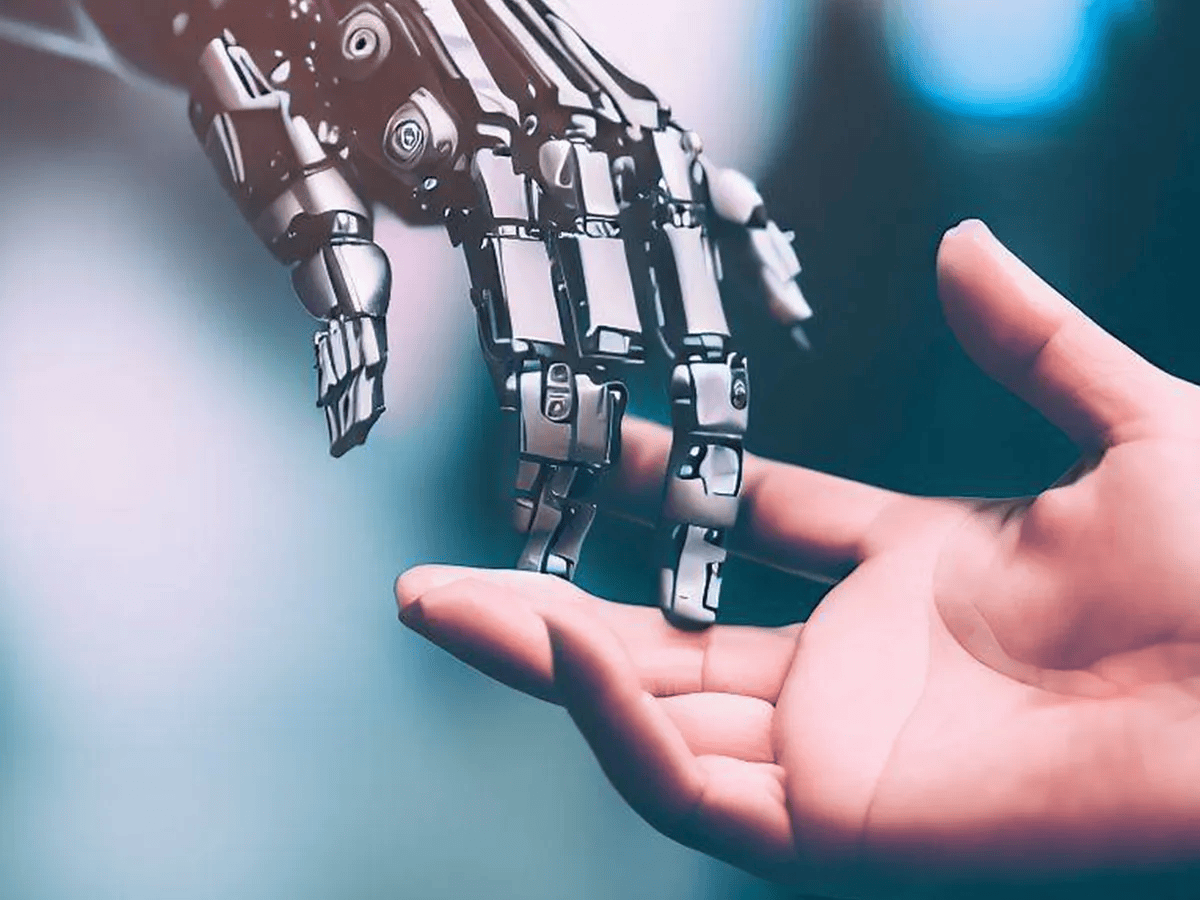
Digital art. Source unknown
Artificial intelligence is not a new discovery. In fact, it has been around since the 1950s. It has only recently caught attention due to the influence of creative channels in social media, from virtual art to music and texts. The term AI has captured more attention in the recent months due to its high exposure and its label as the “new coolest trend.”
Artificial intelligence has revolutionized technology and completely rewritten the future of tech as well as mankind advancement. Africa is not an exception to this new invasion of gadgets and robotic consciousness. Before we dive into what this new technology means to African socio-economic future, we first need to reverse time and go back to the very beginning to understand what exactly artificial intelligence is, where it came from and whether it’s the technological messiah we’ve all been waiting for or an apocalyptic weapon of mass destruction that will end human kind.
What is Artificial intelligence?
Artificial intelligence can be defined as a simulation placement of human consciousness and intelligence into machinery especially computer systems. The most basic applications of artificial intelligence include speech recognition, machine vision, natural language system and various expert systems. Most of the other uses are derived from these channels.
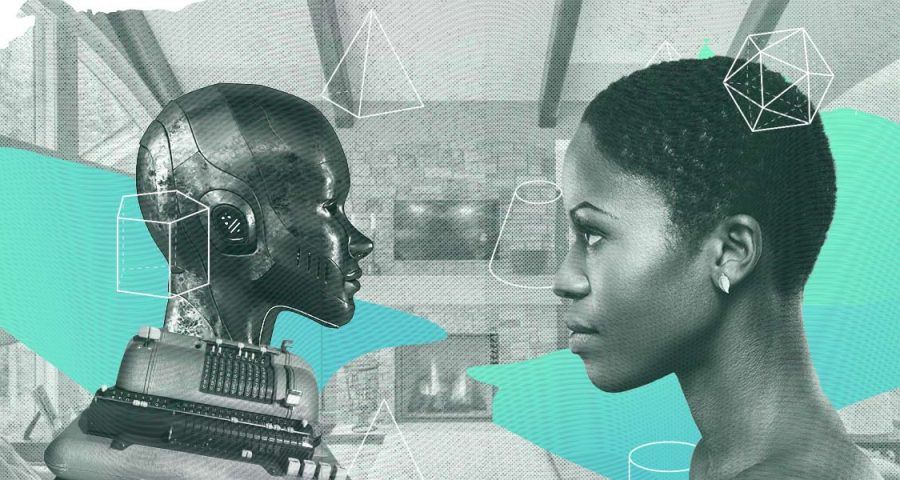
Artificial intelligence mimics human consciousness with a set of predetermined programming rules. (Photo source: AI generated photo by egf)
How does Artificial Intelligence Work?
Artificial Intelligence systems work by ingesting large amounts of labeled training data, analyzing the data for correlations and patterns, and then using these patterns to make predictions about future actions. So for instance a chatbot that is fed examples of text can learn to generate lifelike exchanges with people, or an image recognition tool can learn to identify and describe objects in images by reviewing millions of examples and creating new, original content. New, rapidly improving generative AI techniques can create realistic images, music, texts and other media.
Artificial Intelligence programming focuses on specializing in cognitive skills that include:
- Learning: This aspect of AI programming focuses on acquiring data and creating rules for how to turn it into actionable information. These rules, also known as algorithms are used to provide computing devices with step-by-step instructions for how to complete a specific task.
- Reasoning: This aspect of AI programming focuses on choosing the right algorithm in order to accomplish a task and reach a desired outcome.
- Self-correction: This aspect of AI programming is designed to continually fine-tune algorithms and correct flaws in order to ensure they provide the most accurate results.
- Creativity: This aspect of AI uses neural networks, statistical records, rule based systems and other AI techniques to generate new texts, images, music and ideas.
History of Artificial Intelligence
If you are a media connoisseur like me, you will be shocked to realize that AI has been around for approximately 8 decades. It has been getting more attention recently for all the right and wrong reasons. Most people have been exposed to AI for the first time from generated photos online such as fake celebrity showcases, meet ups and audio generated music of artists singing other artists’ songs.

An AI generated photo of Michael Jackson at an older age. Such trends can be seen all over social media such as Tiktok and Instagram. (Photo source: First post)
The first attempt towards artificial intelligence was done in 1943 by Warren McCulloch and Walter Pits who introduced a model of artificial neurons. In 1949 Donald Hebb demonstrated an updating rule for modifying the strength connections between these neurons. His rule is now called Hebbian learning.
In 1950 Alan Turing an English mathematician published a book, "Computing Machinery and Intelligence" in which he proposed a test. The test can check the machine's ability to exhibit intelligent behavior equivalent to human intelligence. The test is known as a Turing test. Alan played a huge role in advocating and pioneering for machinery learning.
Fast forward to the 21st century. The year 2002, AI was introduced for the first time into homes in the form of a vacuum cleaner called Roomba. In 2006, AI was introduced in the Business world. Companies like Facebook, Twitter, and Netflix also began using artificial intelligence in their systems.

The Roomba vacuum cleaner robot was the first AI household product that paved way for the new 21st century AI revolution (Photo source: iRobotIndia)
In the year 2011, IBM's Watson, an AI programming system won a quiz show, where it had to solve complex questions and riddles. Watson had proved its competence in understanding natural language and solving complex questions quickly. The year 2012 was a great year for Google, they launched an Android app feature called "Google now" which was used to provide predictive information to the users. In 2014, a Chatbot known as "Eugene Goostman" won a competition in the infamous "Turing test."
Recently Google has further demonstrated the use of AI programs by introducing "Duplex" a virtual assistant that is used as a customer service call replacement. A real life incident happened where a woman called for a hairdresser appointment. The call was so realistic that the woman was not aware that she was talking to a programming machine
Fast Advancement
AI has advanced at a remarkable level in such a short period of time. Its advancement is evolving quicker than any other technological discovery in history. The concept of Deep learning, big data, and data science are now trending faster and broadly. Companies like Google, Facebook, IBM, and Amazon work closely with AI to create remarkable devices.
There have been different sides of the rope when discussing whether artificial intelligence is positive or negative. Some people specifically those in the western countries seem to have more positive expectations for this technology than their counterparts in other countries such as those in Africa and Asia. Note, these are basic statistics but opinions will vary greatly from one end to the other in almost every community.
When a new advancement takes front and center in media, the world will look up to the famous and powerful for opinions. And in most times if not always, those words are taken as scriptures. There are several celebrities, scientists, tech entrepreneurs and world leaders who had varied opinions on the use of artificial intelligence in the present and future. What did they say?
“The development of full artificial intelligence could spell the end of the human race….It would take off on its own, and re-design itself at an ever increasing rate. Humans, who are limited by slow biological evolution, couldn’t compete, and would be superseded.” — Stephen Hawking told the BBC
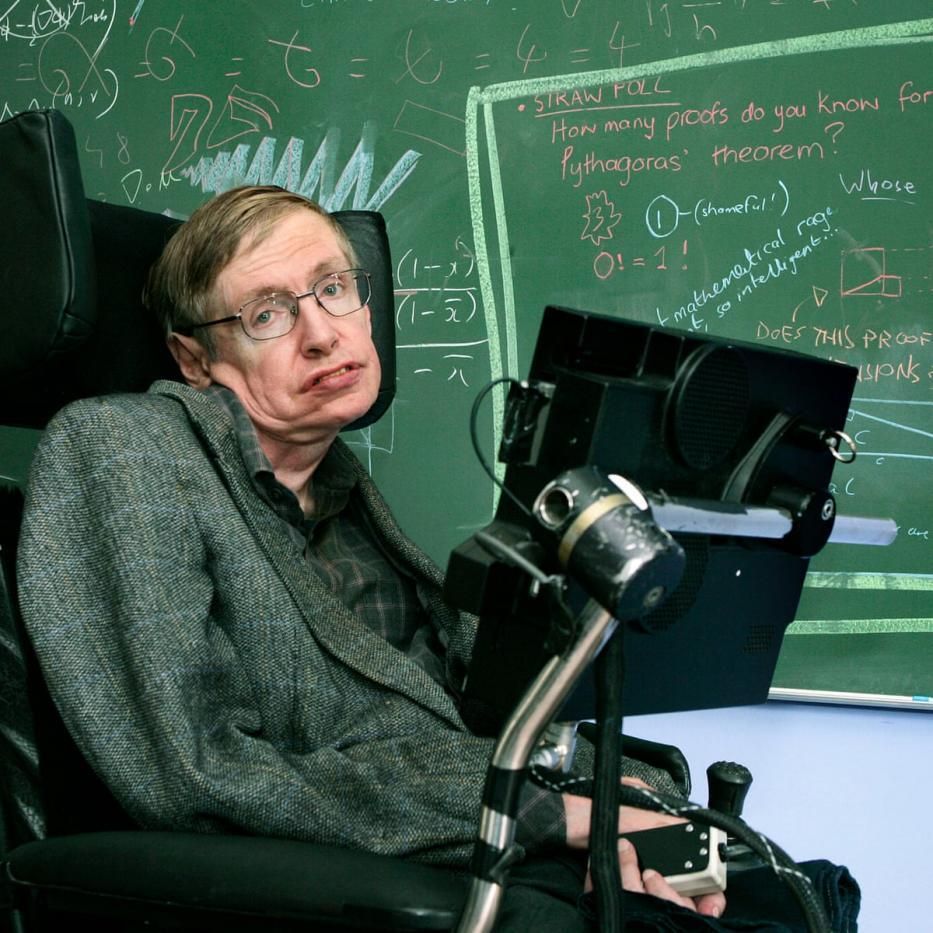
Stephen Hawking had a morbid opinion on the future of Artificial intelligence. He believed that with AI taking front and center it won’t be long until man becomes the maker of his own demise. (Photo source: The Guardian)
“Artificial intelligence would be the ultimate version of Google. The ultimate search engine that would understand everything on the web. It would understand exactly what you wanted, and it would give you the right thing. We’re nowhere near doing that now. However, we can get incrementally closer to that, and that is basically what we work on.”—Larry Page said in 2000, during an interview with the Academy of Achievement
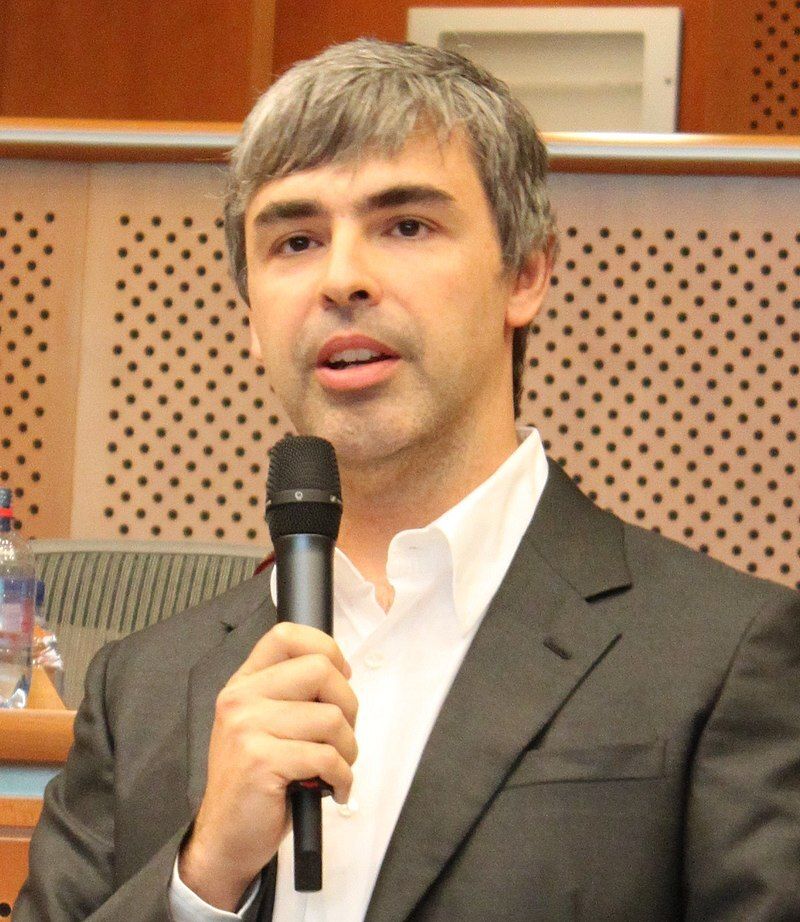
Larry Page, the co-founder of Google believes that AI is a step forward towards efficiency and progress since it will create more accuracy in acquiring data and information to accomplish tasks and make jobs much easier. (Photo source: Stansfield Pl)
“The pace of progress in artificial intelligence (I’m not referring to narrow AI) is incredibly fast. Unless you have direct exposure to groups like Deepmind, you have no idea how fast—it is growing at a pace close to exponential. The risk of something seriously dangerous happening is in the five-year time frame. 10 years at most.”—Elon Musk
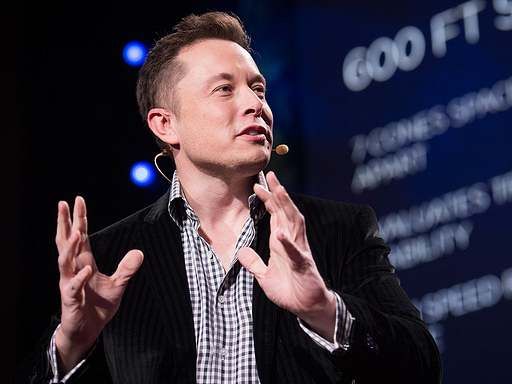
Elon Musk the co-founder of Telsa, SpaceEX, and X quotes Stephen hawking’s words and emphasizes on the need to take cautionary steps due to how fast AI is evolving. A simple miscalculation would lead to catastrophic results. (Photo source: TED)
“I don’t want to really scare you, but it was alarming how many people I talked to who are highly placed people in AI who have retreats that are sort of ‘bug out’ houses, to which they could flee if it all hits the fan.”—James Barrat, author of Our Final Invention: Artificial Intelligence and the End of the Human Era, told the Washington Post.
Based on the quotes above, you can notice the trends and pattern of most people assuming a negative future for artificial intelligence, with exception of a few. Just like any power there should always be a locust of control from the source. If the means of autonomy for artificial intelligence will be limited there will be a chance of experiencing the positives without a fear of negatives.
Introduction of Artificial Intelligence in Eastern Africa
Agriculture is one of the biggest industries in Africa, being a leading sector in the majority of countries in Sub- Sahara. Agriculture remains the economic backbone of the African continent. Approximately 23 % of sub-Saharan Africa's GDP comes from agriculture, comprised of 60 % smallholder farmers. These trends hold true across the East African region. In Kenya, approximately 80 % of citizens engage in agricultural activities for their livelihood. The whole agricultural sector accounts for 43% of the region's annual gross domestic product.

Coffee plantations in Uganda (Photo source: Country Guide)
Artificial intelligence has started to slowly seep into the sector by creating leverage to increase agricultural output and mitigate the effects of climate change. These transformations have already started creating significant impacts into the industry and are aimed to create prolonging lasting results in both the practical and commercial areas of agriculture.
The AI applications that have been introduced in the East African agricultural sector primarily provide information, connect farmers to marketplaces, and help identify crop diseases. UjuziKilimo, for instance is an Artificial Intelligence platform developed and launched in Kenya that provides agricultural data to smallholder farmers. There are other AI applications that have also been introduced into the Kenyan agricultural market that allows smallholder farmers to access credit, inputs and the market. These include AGIN, Tulaa and Apollo Agriculture.
ProjectFARM is another AI platform that was designed to decode patterns in farmers’ activities and generate insights based on the data gathered. At the forefront of these efforts has been the work of women software developers such as Nazirini Siraji from Mbale Uganda who created the “Farmers Companion App” using Google's TensorFlow. This Google open-source machine learning platform is used to prevent the spread of Fall Armyworm from damaging crops.
Artificial intelligence in East Africa has not only created room for new advancement in the agricultural sector. But it has also contributed to employment and entrepreneurial opportunities that are gender inclusive. This goes against the ideology that Artificial Intelligence is taking away job opportunities, not creating them.
Despite the potentially transformative applications of Artificial Intelligence, It is estimated that only one in five (22%) of Eastern Africa’s population believe it will mostly help people in the next 20 years. The report is based on the 2021 Lloyd’s Register Foundation World Risk Poll, powered by Gallup. About 125,000 people across 121 countries were polled about their attitudes towards AI and data, among other risk and safety issues. Eastern Africa showed the highest levels of distrust towards Artificial Intelligence, with clear majorities answering that AI would harm people in their country. Among the East African countries, respondents from Tanzania (62%), Kenya (57%) and Uganda (57%) had the highest percentages of people who said AI would mostly harm people, while no more than 25% in these three countries said it would mostly help.
A key barrier, according to the survey findings, is the level of exposure people have in Artificial intelligence. The Poll found that only 29% of Eastern Africans had used the internet in the past 30 days, which is 34 percentage points lower than the global average (63%). It also found that people with primary education or less still represents the majority in Eastern Africa, at 55%.
Dr. Sarah Cumbers, Director of Evidence and Insight at Lloyd’s Register Foundation stated that despite Artificial intelligence having the potential to improve the general condition of mankind, if the public is not engaged or included in this journey, and are not getting their concerns addressed, then the benefits will be second to its potential. She further stated that it’s essential for governments, policymakers and other actors within the system to engage with the population and address their concerns in order to ensure that the benefits of AI technology can be realized equitably.
The Future of AI in Eastern Africa
Artificial Intelligence technologies are becoming a reality across East Africa, and are largely viewed as the next disruption of the digital space. Its impacts are expected to be observed mostly in the financial sector as well as the governmental sector where implementation of technology is used to improve efficiency in governance, quell corruption and create more employment opportunities.
As a technology, Artificial Intelligence is still in its infant stages. Today's AI systems have only a rudimentary understanding of human expression, emotions, tones and the ways of human interactions. While AI research has a long history of enthusiasm followed by extended disappointment, we are currently in the midst of an extraordinary period of technological innovation across multiple industries.
AI will have a big influence by enabling quicker and deeper advancement in almost every single sector where human intellect plays a role and is applied. It may be used by businesses or organizations to attract and engage with customers, revolutionize product creation, and empower staffs. More importantly, Artificial Intelligence will be used to assist African societies in overcoming some of its most overwhelming challenges.
AI and the Job Market
Is the job I fear replaced a routine job? This may include industrial packaging, laundry washing dishes, picking fruits and answering customer service calls. Those are very much scripted tasks that are repetitive and routine in nature. If that is the case then the answer is yes. Most routine jobs have the highest risk of being replaced by AI in the future.

Young workers in Addis Ababa, Ethiopia, packing beans for export. Routine jobs have the highest risk of AI robotics replacement in the future. (Photo source: Panos/Sven Torfinn)
During a lecture at Northwestern University, an AI expert, Kai-Fu Lee, championed on AI technology and its forthcoming impact while also noting its side effects and limitations. When discussing the replacement of repetitive job tasks with robotics, Lee’s opinion echoed with Infosys’s president Mohit Joshi who told the New York Times that industrial investors are looking to achieve much bigger numbers in productivity. Earlier they had increments of 5 to 10 percent goals in reducing their workforce. Now they want to reduce that to 1 percent of man power.
But there is a high note at the end of the show. Lee stressed that today’s Artificial Intelligence is useless in two significant ways, it has neither creativity nor human compassion to accompany it. It’s only a tool to amplify human creativity. His solution is that those with jobs that involve repetitive or routine tasks must learn new skills so they’re not left on the wayside. More investment should be done to educate and retrain staff to create unique unduplicated skills that will surpass any near or future technological advancement.
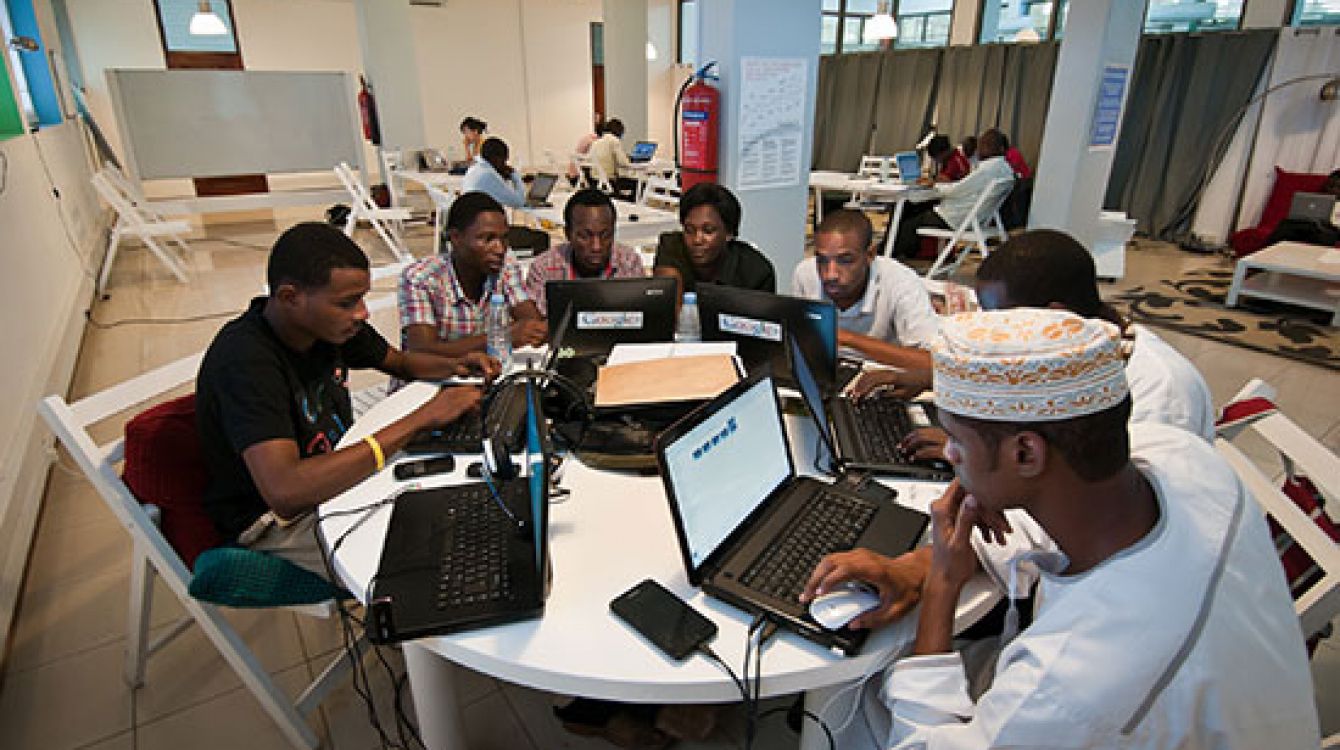
Training in the work place will create certainty in job retention and opportunities and reduce pessimism as the age of Artificial Intelligence draws near. (Photo source: Jonathan Kalan)
Conclusion
Artificial Intelligence is a game-changing innovation with the potential to improve all sectors of the African social and economic systems. However in order to fully capture the potential benefits of this discovery we need to look at the bright side. This means creating a unified acquisition of knowledge from the scientific departments which will work hand in hand with the government bodies to keep communities up to date with all the changes and progresses that are taking place.
Educational seminars, stronger media platforms will all help to ease concerns of the people and enable them to easily embrace those new changes with love instead of fear.
The education fields starting from the low levels to universities should gradually introduce tech studies and focus on evolution of artificial intelligence and robotics. Creating competent software developers and tech professionals will not only create job opportunities but also contribute in the overall growth and advancement of science and technology in the country. Creating unduplicated skills for workers and students will create assurance and stability of obtaining and maintaining their jobs currently and in the future.
Slowly the fear of change will subside and we will gracefully open the next evolutionary chapter of mankind with hope and certainty of better things to come.
